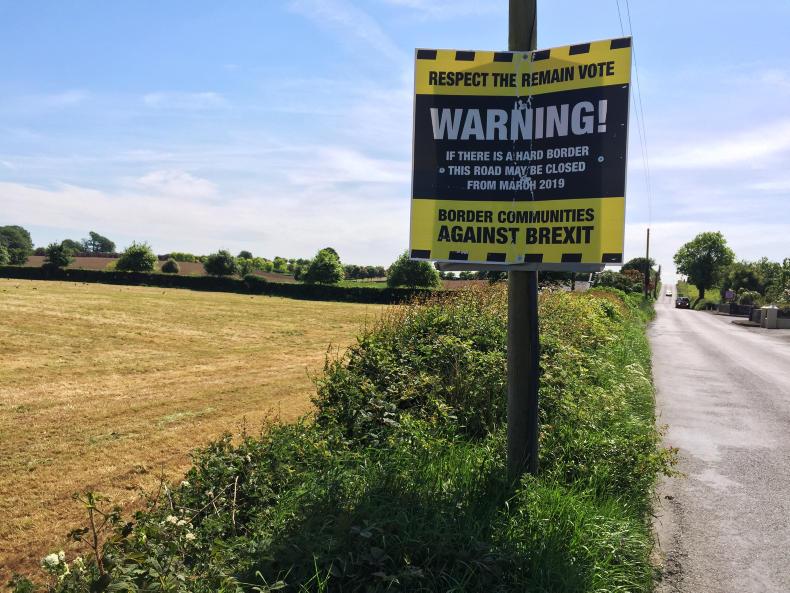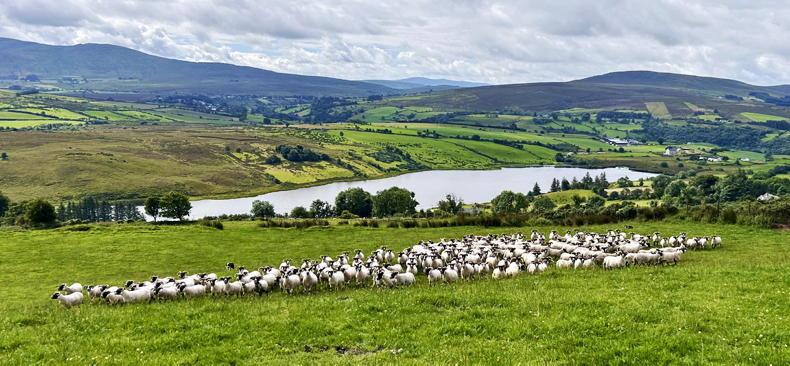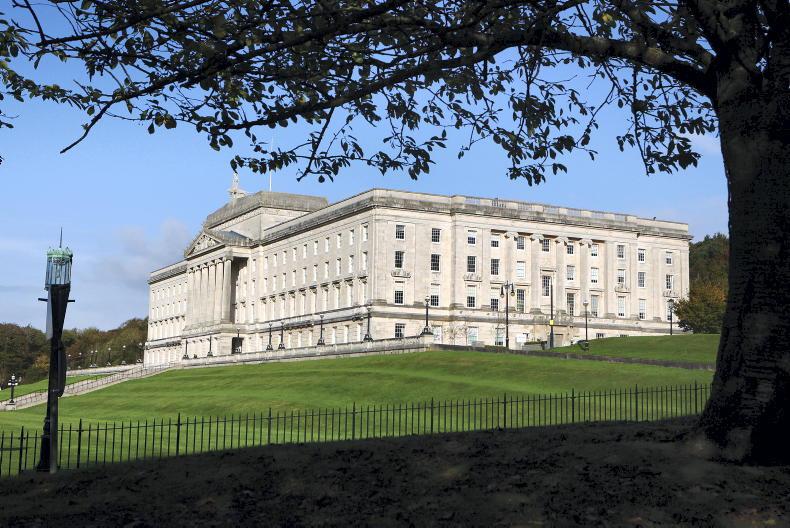The man tipped to be the next leader of the DUP, Lagan Valley MP Sir Jeffrey Donaldson, was left in no doubt last night that NI agri-business leaders are supportive of the draft withdrawal agreement put forward by the EU and British Prime Minister Theresa May.
Donaldson was among a number of senior NI politicians attending the annual dinner of the NI Food and Drink Association (NIFDA).
With over 250 representatives of agri-businesses in the room, the mood was firmly in favour of the draft agreement, especially when compared with the prospect of a no-deal Brexit.
Running out of cash
Perhaps most stark was the picture painted by one leading NI dairy company, which is reported to have indicated that it could run out of cash in a matter of weeks if a no-deal Brexit occurs.
That highlights the complex web of existing supply chains, combined with tight processor margins.
Disruption to the market could stop processing, but milk must still be bought on a daily basis.
A no-deal Brexit is not an option – the clear message from NIFDA is that it would be “disastrous”.
It was also the term used by the Ulster Farmers’ Union (UFU) to describe a no-deal Brexit in a statement put out before the NIFDA dinner.
The organisation also said it cautiously welcomed the progress made on the UK’s withdrawal agreement.
UFU board meeting
That came after a UFU board meeting earlier in the day and growing pressure on the organisation to state a position.
Like wider society, the UFU membership is split on Brexit and there are those in the organisation who favour a hard Brexit outcome.
“Throughout the UK, Brexit has become overly political and emotive. We are focused on what is best for the future of family-run farm businesses in NI,” said UFU president Ivor Ferguson.
In an interview yesterday with the BBC, Jeffrey Donaldson suggested that agri-business leaders did not fully understand what is exactly in the deal.
The main concern for the DUP seems to centre on the backstop arrangement.
The proposal is that all of the UK stays in the EU customs territory and, in addition, NI stays in the EU single market for goods.
EU customs territory
By being in the EU customs territory, it means that the UK would apply EU tariffs on imports and would have to get EU agreement before allowing in any products tariff-free.
For NI, the relationship is deeper and goods produced here would have to meet EU rules to allow them to flow unhindered across EU borders.
The backstop only applies if a better arrangement cannot be found as part of a future UK-EU trade deal.
But the key issue for the DUP is that there is a mechanism in the draft withdrawal agreement (albeit it would have to be agreed with the EU) that the UK could get out of this customs arrangement.
However, there is no mechanism for NI to get out of the its backstop arrangement (whereby goods from here meet EU single market rules).
So, if in 10 or 20 years, the UK and EU decide to go separate ways, NI is effectively left in the EU single market.
Ultimately, it is the UK government that decides to put a border down the Irish Sea.
It does not seem to be a concern shared by NI agri-food businesses, which look at an agreement that guarantees them “unfettered” access to the UK market, plus access to the EU market for goods and, importantly, access to EU trade deals for goods.
“The draft withdrawal agreement could provide NI food and drink business with an unparalleled opportunity,” said NIFDA chair Brian Irwin in his speech last night.
Read more
‘Our sheep industry would be completely finished’
UFU 'cautiously welcomes' draft Brexit deal
The man tipped to be the next leader of the DUP, Lagan Valley MP Sir Jeffrey Donaldson, was left in no doubt last night that NI agri-business leaders are supportive of the draft withdrawal agreement put forward by the EU and British Prime Minister Theresa May.
Donaldson was among a number of senior NI politicians attending the annual dinner of the NI Food and Drink Association (NIFDA).
With over 250 representatives of agri-businesses in the room, the mood was firmly in favour of the draft agreement, especially when compared with the prospect of a no-deal Brexit.
Running out of cash
Perhaps most stark was the picture painted by one leading NI dairy company, which is reported to have indicated that it could run out of cash in a matter of weeks if a no-deal Brexit occurs.
That highlights the complex web of existing supply chains, combined with tight processor margins.
Disruption to the market could stop processing, but milk must still be bought on a daily basis.
A no-deal Brexit is not an option – the clear message from NIFDA is that it would be “disastrous”.
It was also the term used by the Ulster Farmers’ Union (UFU) to describe a no-deal Brexit in a statement put out before the NIFDA dinner.
The organisation also said it cautiously welcomed the progress made on the UK’s withdrawal agreement.
UFU board meeting
That came after a UFU board meeting earlier in the day and growing pressure on the organisation to state a position.
Like wider society, the UFU membership is split on Brexit and there are those in the organisation who favour a hard Brexit outcome.
“Throughout the UK, Brexit has become overly political and emotive. We are focused on what is best for the future of family-run farm businesses in NI,” said UFU president Ivor Ferguson.
In an interview yesterday with the BBC, Jeffrey Donaldson suggested that agri-business leaders did not fully understand what is exactly in the deal.
The main concern for the DUP seems to centre on the backstop arrangement.
The proposal is that all of the UK stays in the EU customs territory and, in addition, NI stays in the EU single market for goods.
EU customs territory
By being in the EU customs territory, it means that the UK would apply EU tariffs on imports and would have to get EU agreement before allowing in any products tariff-free.
For NI, the relationship is deeper and goods produced here would have to meet EU rules to allow them to flow unhindered across EU borders.
The backstop only applies if a better arrangement cannot be found as part of a future UK-EU trade deal.
But the key issue for the DUP is that there is a mechanism in the draft withdrawal agreement (albeit it would have to be agreed with the EU) that the UK could get out of this customs arrangement.
However, there is no mechanism for NI to get out of the its backstop arrangement (whereby goods from here meet EU single market rules).
So, if in 10 or 20 years, the UK and EU decide to go separate ways, NI is effectively left in the EU single market.
Ultimately, it is the UK government that decides to put a border down the Irish Sea.
It does not seem to be a concern shared by NI agri-food businesses, which look at an agreement that guarantees them “unfettered” access to the UK market, plus access to the EU market for goods and, importantly, access to EU trade deals for goods.
“The draft withdrawal agreement could provide NI food and drink business with an unparalleled opportunity,” said NIFDA chair Brian Irwin in his speech last night.
Read more
‘Our sheep industry would be completely finished’
UFU 'cautiously welcomes' draft Brexit deal









SHARING OPTIONS